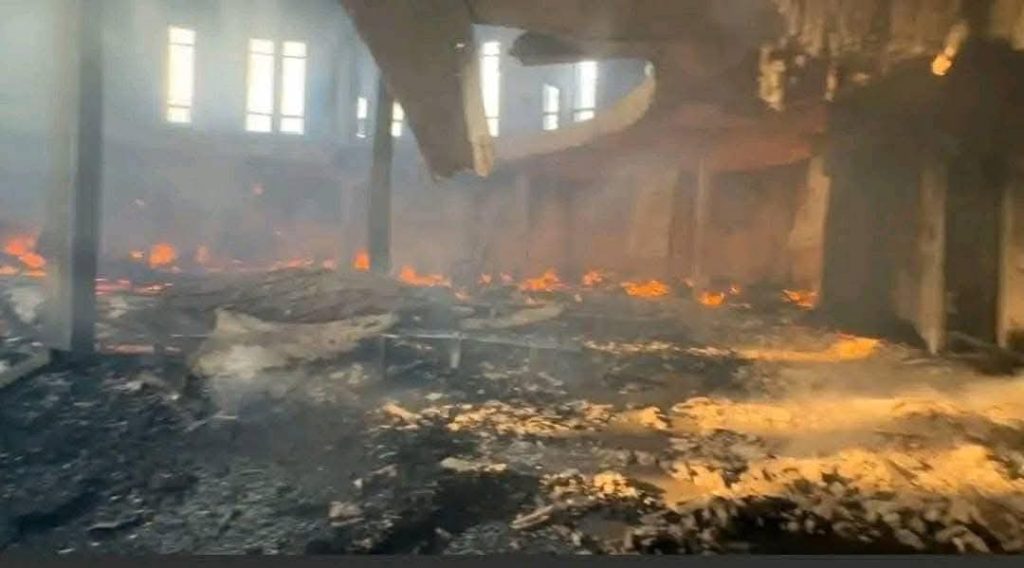The fire that engulfed Liberia’s Capitol Building on December 17, 2024, has sparked outrage and condemnation among citizens, who point fingers at national leaders for the destructive incident. The blaze, which occurred amidst a power struggle within the House of Representatives over the speakership, is seen by many as a consequence of political infighting and a blatant disregard for the rule of law. Public sentiment reflects a deep sense of betrayal and disillusionment, with many expressing fears of further chaos if those responsible are not held accountable.
Cecelia Harmond, a resident of Monrovia, characterized the fire as an act of “cruelty, lawlessness, and destruction.” She attributed the incident to the ongoing power struggle within the legislature, highlighting the fact that this was the second fire at the Capitol in recent times. Ms. Harmond’s concern, shared by many, is that the recurring nature of such incidents suggests a pattern of unresolved conflict and a lack of accountability within the government. Her warning of “serious chaos” underscores the potential for further unrest if decisive action isn’t taken to address the root causes of the incident and bring the perpetrators to justice.
Adding to the chorus of condemnation, Alphonso Doe, another Monrovia resident, called upon President Boakai to take swift action against those responsible. He specifically demanded the arrest and interrogation of the security personnel assigned to the Capitol Building, questioning how such a significant event could occur under their watch. Mr. Doe’s skepticism about official explanations, particularly the possibility of blaming the fire on electrical faults, reflects a broader public distrust in the government’s narrative and a growing belief that the incident is a direct result of political machinations.
The fire at the Capitol Building is not merely an isolated incident; it is viewed as a symptom of deeper political tensions and a struggle for power that has gripped the Liberian government. The ongoing dispute over the speakership has created a volatile environment, with accusations of illegal and unconstitutional actions being leveled against various parties. The incident underscores the fragility of Liberia’s democratic institutions and the potential for political disputes to escalate into violence and destruction.
The protest led by former Grand Bassa County superintendent, Janjay Gbarpbea, leading up to the fire, further illuminates the political context. Gbarpbea and his supporters were protesting what they perceived as unlawful interference by President Boakai and Vice President Koung in the removal of Speaker J. Fonati Kofa. Their actions, while ultimately resulting in a violent clash with security forces, highlight the deeply contentious nature of the speakership issue and the growing resistance to perceived executive overreach.
The fire at the Capitol Building serves as a stark reminder of the importance of upholding the rule of law and ensuring accountability within government institutions. The public’s demand for a thorough investigation and prosecution of those responsible reflects a yearning for justice and a desire to prevent such incidents from recurring. The government’s response to this crisis will be a critical test of its commitment to transparency, accountability, and the preservation of democratic principles. Failure to address the underlying political tensions and bring the perpetrators to justice could further destabilize the nation and erode public trust in the government. The future of Liberia hinges on the government’s ability to navigate these challenging political waters and restore faith in its institutions. The call for justice resonates throughout the nation, demanding not only answers about the fire itself but also a broader reckoning with the political divisions that threaten to undermine the country’s stability.


